Subhash Sagar
Learning to Select the Relevant History Turns in Conversational Question Answering
Aug 04, 2023



Abstract:The increasing demand for the web-based digital assistants has given a rapid rise in the interest of the Information Retrieval (IR) community towards the field of conversational question answering (ConvQA). However, one of the critical aspects of ConvQA is the effective selection of conversational history turns to answer the question at hand. The dependency between relevant history selection and correct answer prediction is an intriguing but under-explored area. The selected relevant context can better guide the system so as to where exactly in the passage to look for an answer. Irrelevant context, on the other hand, brings noise to the system, thereby resulting in a decline in the model's performance. In this paper, we propose a framework, DHS-ConvQA (Dynamic History Selection in Conversational Question Answering), that first generates the context and question entities for all the history turns, which are then pruned on the basis of similarity they share in common with the question at hand. We also propose an attention-based mechanism to re-rank the pruned terms based on their calculated weights of how useful they are in answering the question. In the end, we further aid the model by highlighting the terms in the re-ranked conversational history using a binary classification task and keeping the useful terms (predicted as 1) and ignoring the irrelevant terms (predicted as 0). We demonstrate the efficacy of our proposed framework with extensive experimental results on CANARD and QuAC -- the two popularly utilized datasets in ConvQA. We demonstrate that selecting relevant turns works better than rewriting the original question. We also investigate how adding the irrelevant history turns negatively impacts the model's performance and discuss the research challenges that demand more attention from the IR community.
Federated Graph Learning for Low Probability of Detection in Wireless Ad-Hoc Networks
Jun 01, 2023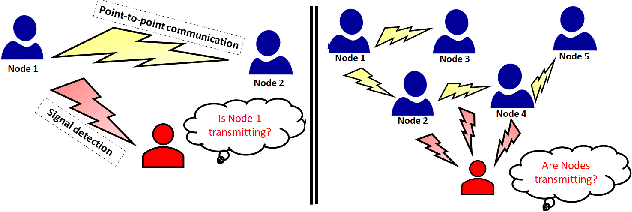
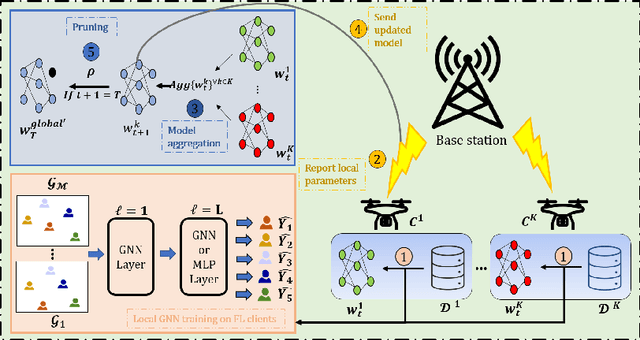


Abstract:Low probability of detection (LPD) has recently emerged as a means to enhance the privacy and security of wireless networks. Unlike existing wireless security techniques, LPD measures aim to conceal the entire existence of wireless communication instead of safeguarding the information transmitted from users. Motivated by LPD communication, in this paper, we study a privacy-preserving and distributed framework based on graph neural networks to minimise the detectability of a wireless ad-hoc network as a whole and predict an optimal communication region for each node in the wireless network, allowing them to communicate while remaining undetected from external actors. We also demonstrate the effectiveness of the proposed method in terms of two performance measures, i.e., mean absolute error and median absolute error.
Poisoning Attacks and Defenses in Federated Learning: A Survey
Jan 14, 2023Abstract:Federated learning (FL) enables the training of models among distributed clients without compromising the privacy of training datasets, while the invisibility of clients datasets and the training process poses a variety of security threats. This survey provides the taxonomy of poisoning attacks and experimental evaluation to discuss the need for robust FL.
BERT-CoQAC: BERT-based Conversational Question Answering in Context
Apr 23, 2021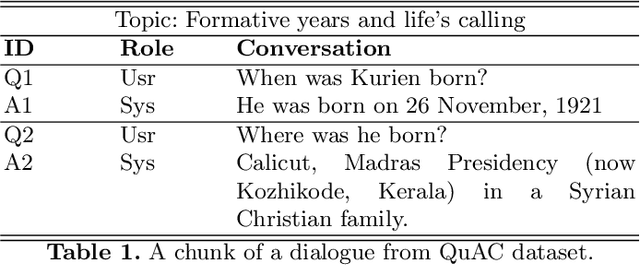
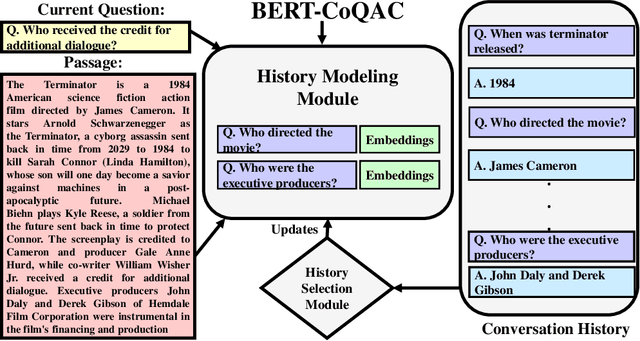
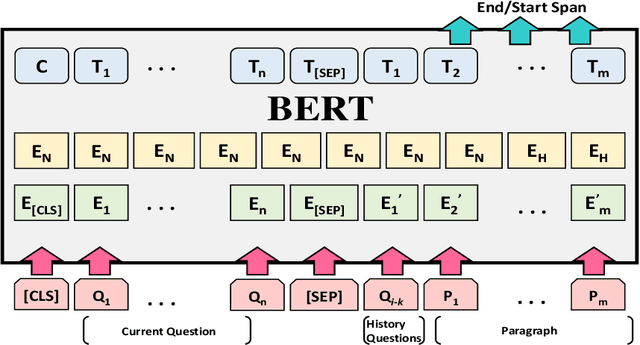

Abstract:As one promising way to inquire about any particular information through a dialog with the bot, question answering dialog systems have gained increasing research interests recently. Designing interactive QA systems has always been a challenging task in natural language processing and used as a benchmark to evaluate a machine's ability of natural language understanding. However, such systems often struggle when the question answering is carried out in multiple turns by the users to seek more information based on what they have already learned, thus, giving rise to another complicated form called Conversational Question Answering (CQA). CQA systems are often criticized for not understanding or utilizing the previous context of the conversation when answering the questions. To address the research gap, in this paper, we explore how to integrate conversational history into the neural machine comprehension system. On one hand, we introduce a framework based on a publically available pre-trained language model called BERT for incorporating history turns into the system. On the other hand, we propose a history selection mechanism that selects the turns that are relevant and contributes the most to answer the current question. Experimentation results revealed that our framework is comparable in performance with the state-of-the-art models on the QuAC leader board. We also conduct a number of experiments to show the side effects of using entire context information which brings unnecessary information and noise signals resulting in a decline in the model's performance.
 Add to Chrome
Add to Chrome Add to Firefox
Add to Firefox Add to Edge
Add to Edge